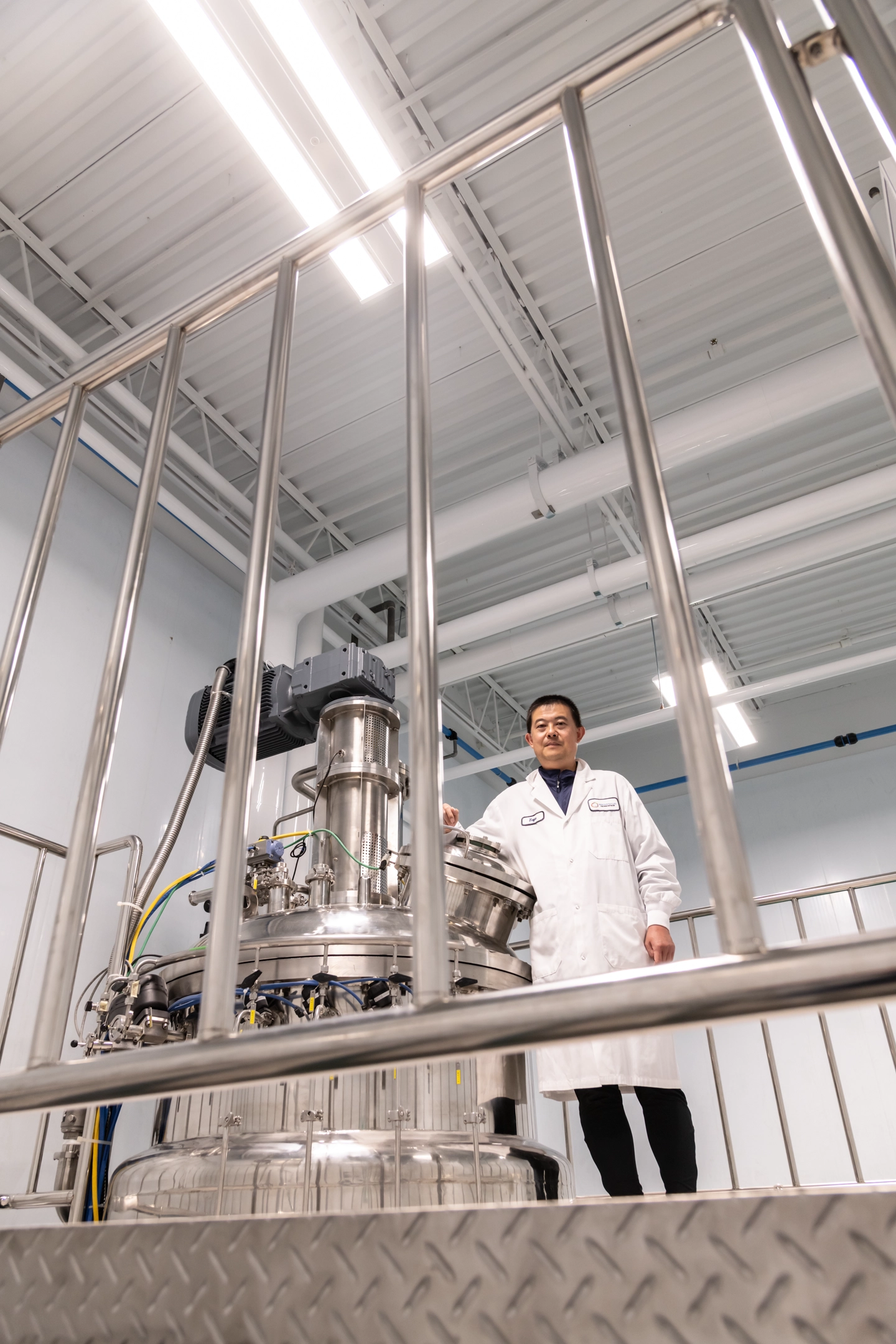In agriculture, Phosphorus is a cornerstone nutrient. But global reserves are geopolitically concentrated and environmentally costly to mine. Once applied, a large portion gets locked in the soil or lost to waterways, where it contributes to eutrophication rather than crop productivity.
Nitrogen is abundant in the atmosphere, but inaccessible to plants. Industrial fertilizers bridge the gap at the cost of massive energy use and greenhouse gas emissions (CO₂ and N₂O).
Together, phosphorus scarcity and nitrogen inefficiency define the unsustainability of modern agriculture.
Microbes as nutrient enablers
At Proventus, we see microbes not as marginal helpers, but as systems-level enablers.
Through microbial fermentation, we can unlock biological functionalities that nature evolved and that we can now deliver at scale:
- Release soil-bound phosphorus through the production of organic acids and phosphatases
- Solubilize mineral phosphorus for improved plant uptake
- Fix atmospheric nitrogen via symbiotic or free-living diazotrophs
- Recycle phosphorus and nitrogen from organic waste streams via microbial conversion
“Fermentation isn’t just a production tool. It’s a gateway to microbial functionalities that nature perfected, and we can now deploy at scale.”
Yuyu Shao, Chief Scientific Director, Proventus Bioscience

Proventus in action:
From lab to field
Client Profile
Large-scale sustainable farming operation (300 hectares).
Challenge
Reduce reliance on synthetic inputs while maintaining crop yield.
Proventus Solution
Custom microbial formulation combining nitrogen-fixing and phosphorus-solubilizing strains. Validated through replicated field trials across two geographic locations.
Key Results
- +13% crop yield (86.9 vs 77.1 t/ha)
- Improved early-stage stress resistance
- Soil chemistry remained stable, with better calcium saturation
- +1,780 $/ha in additional value for low application cost
This field application proves that nutrient efficiency isn’t a theoretical benefit: it’s a measurable outcome.
Microbial fermentation works. And Proventus makes it work under real-world conditions.
From potential to performance
Developing microbial products that deliver nutrient efficiency requires more than sourcing the right strains. It requires formulation expertise to ensure they work, reliably and consistently, under industrial and field conditions:
- Survive drying, storage, and transport
- Activate in variable soils (pH, moisture, microbiome, temperature and nutrients)
- Maintain viability and functionality over time
- Deliver consistent results across geographies
Our approach includes:
- Strain screening for phosphatase activity, acidification potential, and nitrogenase expression
- Consortia design for synergistic action (e.g., phosphate solubilizers + nitrogen fixers)
- Stress simulation across relevant use scenarios (thermal, osmotic, aerobic, oxydative)
- Fermentation process engineering to optimize yield, spore formation, and functional metabolite production
Why it matters now
Phosphorus is now on the EU’s list of critical raw materials. Fertilizer markets remain volatile. And pressure to reduce nitrate runoff and eutrophication is intensifying.
Meanwhile, bio-based alternatives are reaching technical and commercial maturity.
We see microbial fermentation as a strategic tool enabling more circular, efficient, and high-performing ag systems without depleting finite resources. This is the central blind spot in many multi-strain products: viability is often measured in isolation, not in formulation. But what matters in a real-world context is coexistence under formulation, storage, transport, and use conditions.

Conclusion: From mineral dependency to microbial resilience
The dual challenge of phosphorus depletion and nitrogen inefficiency is real. But it’s also an opportunity to rethink how we deliver nutrients, how we design biological systems, and how we define performance.
At Proventus, we’re investing in the science, formulation platforms, and fermentation infrastructure to turn this opportunity into robust, field-ready solutions.
Because sustainability isn’t just a goal.
It’s a formulation challenge.